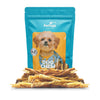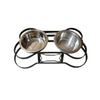Numerous myths exist regarding pet nutrition, complicating the task of distinguishing between facts and myths. Many pet owners subscribe to widely held misconceptions that can lead them astray in their choices about pet food. It is crucial to dispel these myths to ensure that pet owners do not inadvertently provide their beloved animals with inadequate nutrition.
Myth 1: Dogs Can Thrive on a Fully Vegetarian Diet
Numerous pet owners assert that dogs can thrive on a fully vegetarian diet, just like humans. This belief is rooted in the assumption that dogs can obtain all vital nutrients from plant sources, provided the diet is carefully structured.
Fact: Dogs have the capacity to digest and derive nutrients from plant materials, yet their biological makeup is primarily suited to harness the advantages of nutrients found in animal products. Dogs, being omnivorous in nature, have specific nutritional demands that are optimally addressed through the inclusion of animal products in their meals. These animal-derived nutrients are crucial, supplying essential amino acids, vitamins that are not easily replicated in a vegetarian diet.
Myth 2: Wet Food Causes Obesity in Pets
A significant number of pet owners choose to avoid commercial wet food for their pets, believing it may cause unwanted weight gain. This assumption is often based on the idea that wet food is more calorie-rich or indulgent, potentially leading to obesity over time.
Fact: In fact, wet food provides numerous advantages that can enhance a pet's health when included in a well-rounded diet. Its elevated water content contributes to a sense of fullness and satisfaction, which may assist pets in feeling content with a lower caloric intake. Yet if a pet experiences weight gain while on a wet food diet, it is typically attributable to an overabundance of treats or huge portions rather than the wet food itself. Sticking to portion sizes and minimizing additional treats, can serve as an integral part of a nutritious diet that fosters overall health.
Myth 3: Human Foods are Completely Safe for Pets
A common misconception among pet owners is that food deemed safe for humans is also suitable for pets. This belief often encourages the sharing of table scraps or treats with pets, as owners tend to think that "people's food" cannot be detrimental to their furry companions.
Fact: In truth, a variety of human foods such as chocolate, grapes, onions, garlic, and specific spices can pose significant risks to pets, potentially leading to toxic reactions including vomiting, gastrointestinal distress, and even damage to vital organs. Furthermore, foods that are high in fat, including fried or greasy dishes, can provoke pancreatitis, a painful and potentially life-threatening condition for pets. It is advisable to provide them with dog chews or treats.
Myth 4: Grain-free Meals are Healthier for the Pets
Many pet owners are of the opinion that grain-free diets offer greater advantages compared to those that contain grains, with the belief that grains are merely fillers or potentially harmful to dogs.
Fact: Grain-free diets may offer advantages for dogs with specific grain allergies; however, the majority of dogs without grain sensitivities can effectively digest grains, which supply essential nutrients. Studies have indicated a possible association between grain-free diets and an elevated risk of dilated cardiomyopathy (DCM) in dogs.
Grains such as rice, oats, and barley provide vital nutrients, including fiber, vitamins, and minerals, that aid in digestion and support energy levels in dogs. It is important to note that grain-free diets are not always the healthiest choice for dogs. For those aiming to provide a comprehensive diet, high-quality dog treats containing whole grains can also be nutritious.
Myth 5: Pets Should Have the Same Meal Every Time
Many pet owners are convinced that frequently changing their dog's food may upset their digestive system. This belief often leads them to maintain a consistent diet daily, fearing that any change could trigger stomach issues.
Fact: A methodical and gradual transition to new foods can prove to be beneficial for most dogs. By introducing a variety of foods into their diet, you can alleviate the boredom associated with mealtime. More importantly, a varied diet provides dogs with access to a wider spectrum of nutrients, which is crucial for their overall health. Each type of food contains specific vitamins, minerals, and antioxidants that may be lacking if they are fed the same meal daily. Additionally, incorporating dietary variety gradually can help reduce the risk of food sensitivities. This approach to dietary variety is beneficial for the well-being of dogs.
Myth 6: Bones are Completely Safe and Healthy for Your Dogs
Pet owners often hold the false belief that any natural bone is fully safe and offers significant nutritional benefits for their dogs.
Fact: Dogs have a natural affinity for chewing bones; however, the potential for splintering poses a danger, as sharp pieces can harm their gums or, in serious situations, penetrate their gastrointestinal tract, resulting in health issues. To mitigate these risks, it is better to provide chew toys that offer comparable benefits without the hazards.
Myth 7: More Protein is Always Better
A prevalent myth exists amongst pet owners that feeding pets large quantities of protein will greatly boost their energy and vitality.
Fact: There is no doubt that protein is a fundamental element of a pet's diet, but an overabundance can cause stress on their kidneys, particularly in senior pets. It is important to regulate protein intake according to your pet's age, size, and activity level.
Myth 8: By-products of Pet Food are Unhealthy
Several pet guardians argue that by-products found in pet food should be avoided, as they are considered to be highly detrimental to health.
Fact: By-products consist of nutritious components derived from animals that can contribute positively to holistic pet nutrition. Despite their rarity, these products, such as organs, are nutrient-dense and rich in essential vitamins, particularly A and B-complex, which play a crucial role in promoting healthy skin, coat, and energy levels. The proteins found in these tissues are also highly digestible for pets, offering a concentrated source of amino acids that are vital for muscle growth and repair.
Myth 9: All Natural or Organic Foods Are Always Healthier for Pets
The increasing trend towards organic and natural products has led many pet owners to believe that organic or "all-natural" pet foods are automatically healthier for their animals.
Fact: It is essential to understand that although natural or organic foods may contain high-quality ingredients, they do not always provide complete or balanced nutritional support. The classification of a product as "natural" does not imply that it possesses a nutritionally balanced composition.
They may consist of minimally processed ingredients, which may seem advantageous. However, these products might not offer the full spectrum of nutrients that pets need. it's essential to always look for pet foods that ensure balanced nutrition.
The myths highlighted above are widely recognized and often contribute to confusion among pet owners. It is crucial to address and correct these misconceptions regularly; failing to do so may result in people treating their pets based on false beliefs, which could be detrimental to their well-being over time.




Leave a comment